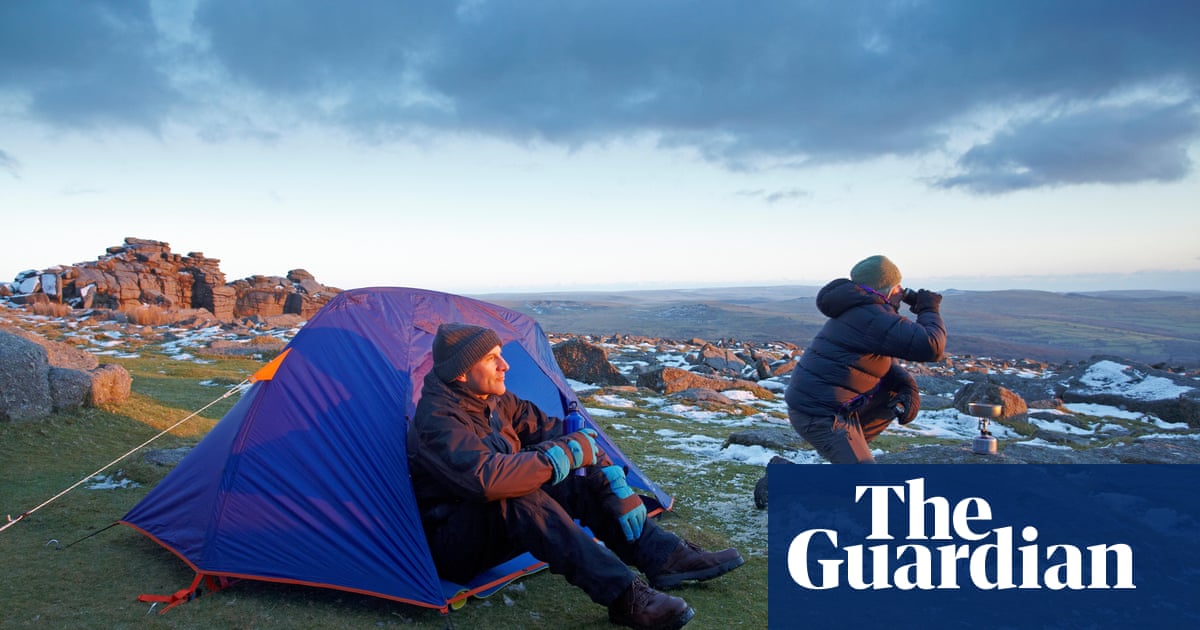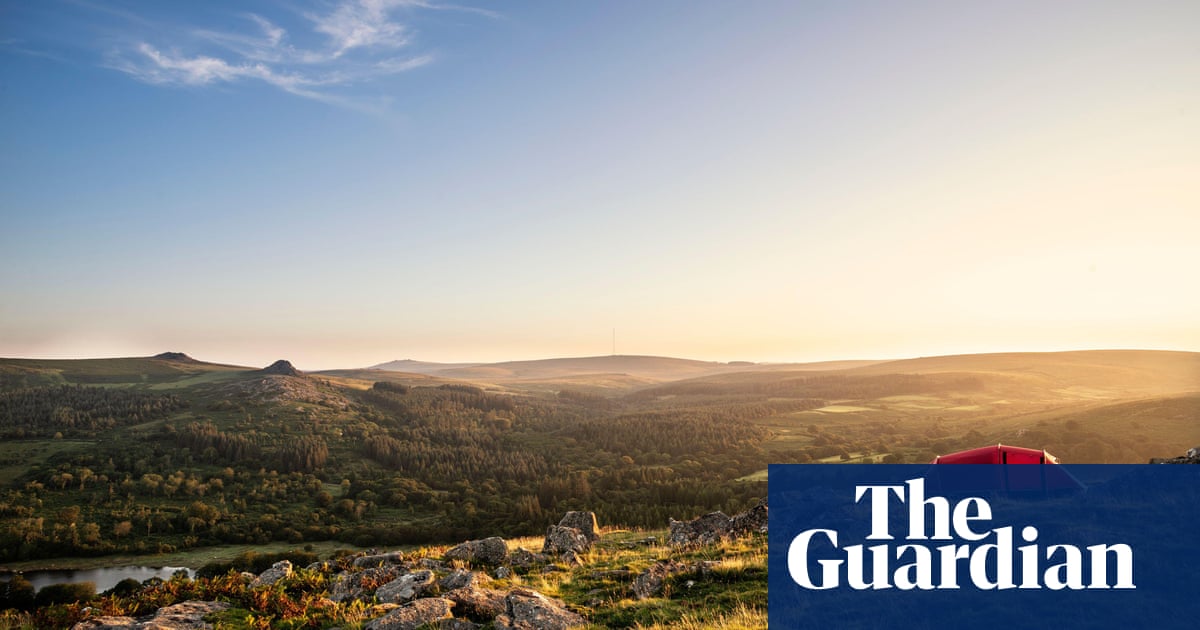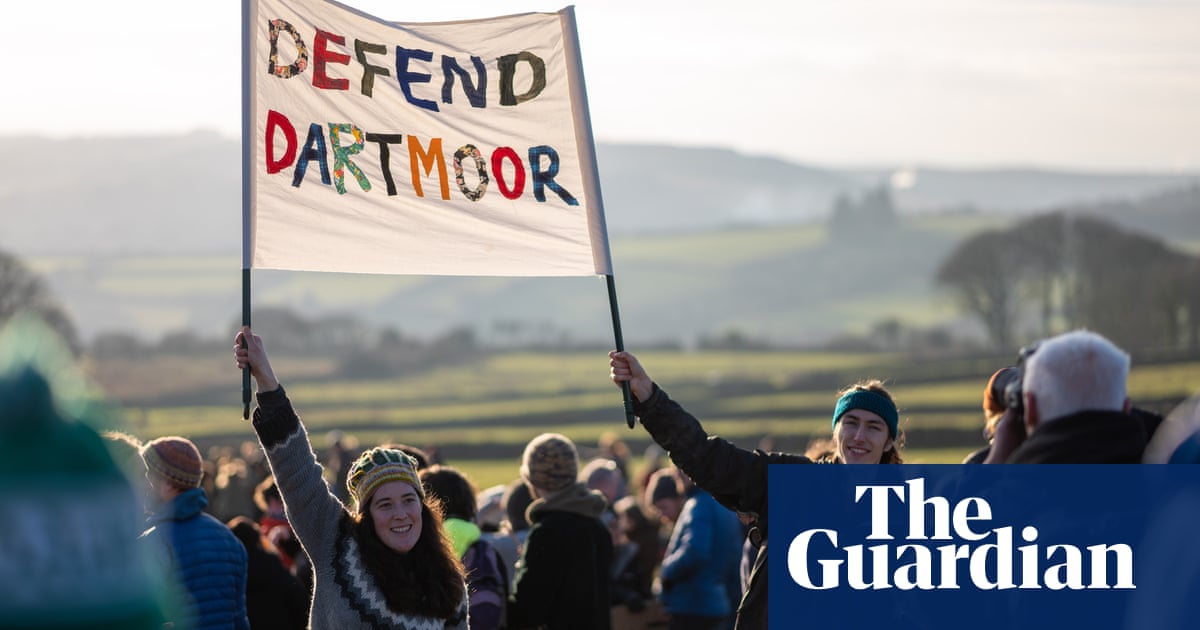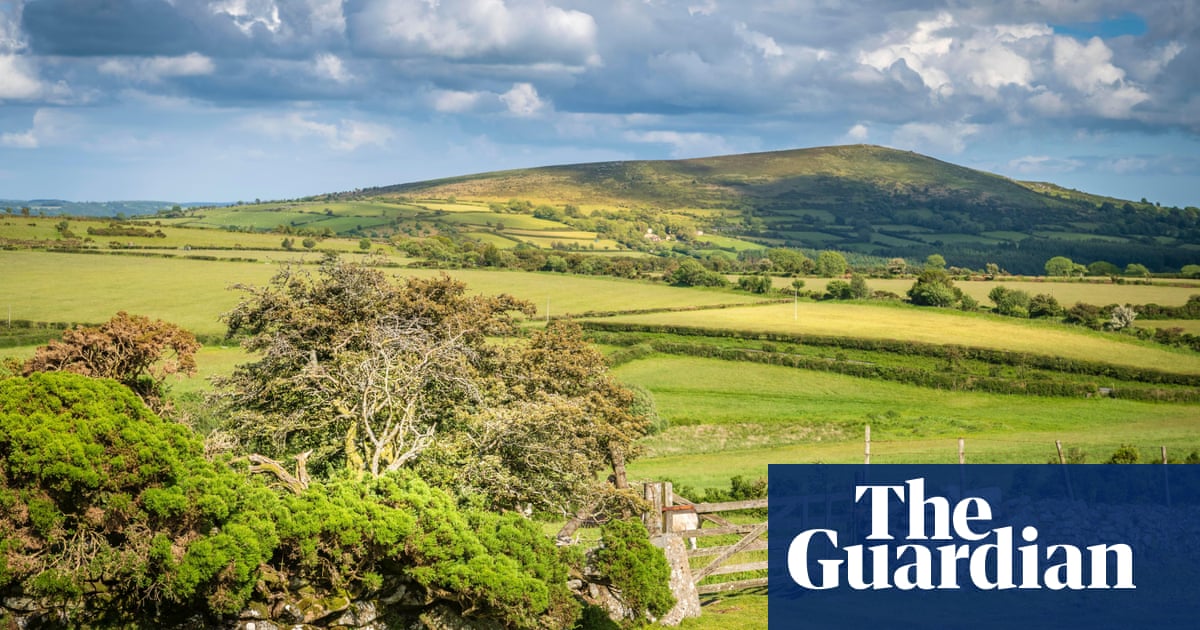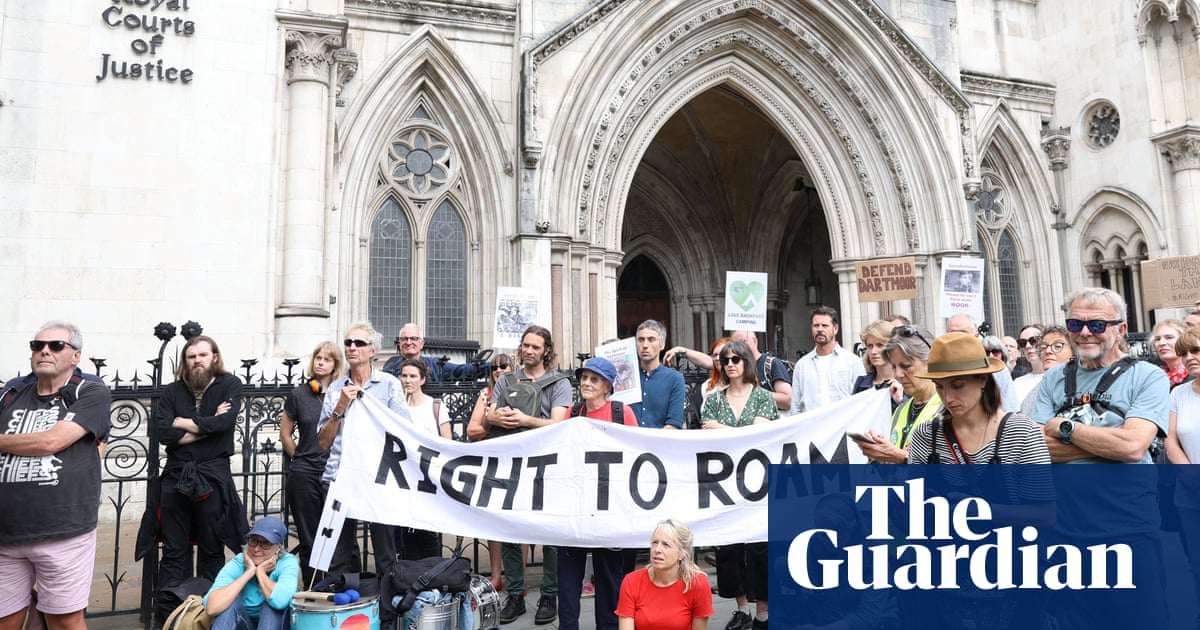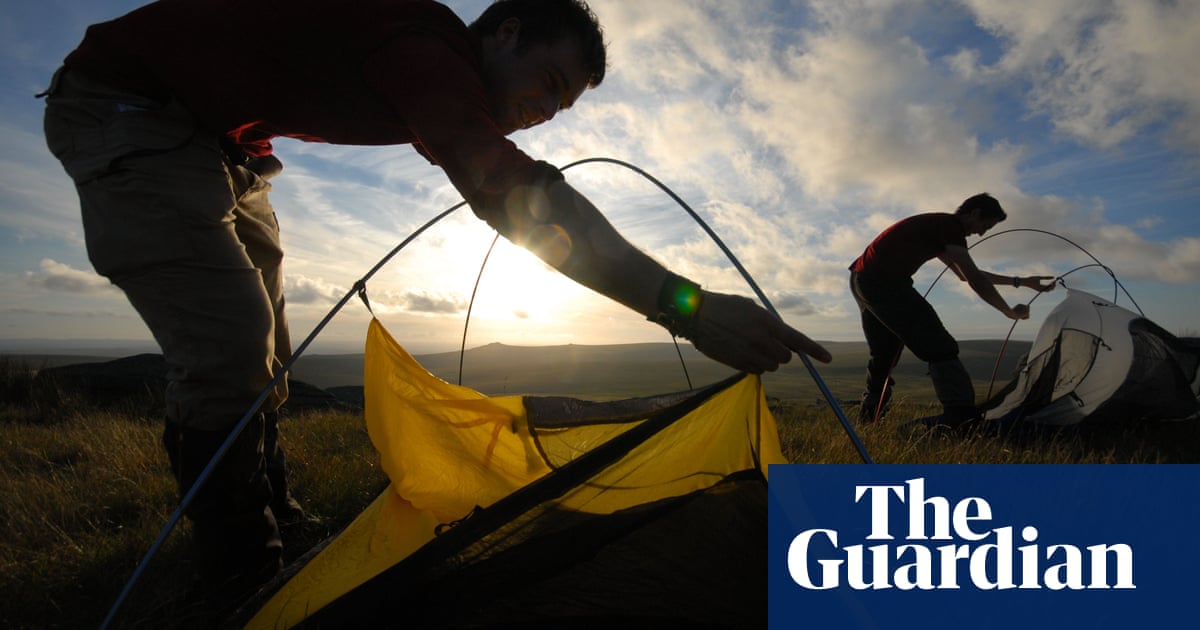
A landowner who successfully overturned the right to wild camp on Dartmoor may have to return to court after the national park announced it was seeking permission to appeal against the decision.
Alexander Darwall, who bought 1,620 hectares (4,000 acres) of the national park in 2013, took the park authority to the high court, arguing that the right to wild camp without a landowner’s permission never existed. Earlier this month, a judge ruled in his favour, ending the decades-long assumption that the activity was allowed.
However, lawyers acting for the park argue the judgment could be flawed because it hinges on a narrow definition of open-air recreation, where only activities such as walking, horse riding and picnicking are permitted. They also argue that it fails to take into account the historic understanding of the law, which thousands of people including the park authority took to mean a right to camp and leave no trace.
Kevin Bishop, the chief executive of the Dartmoor National Park Authority, announced the decision on Friday: “The high court judgment raises important issues of public interest that are central to the purpose of our national parks. For this reason, the authority has determined to seek permission to appeal against the judgment.
“Our national parks are largely owned by private individuals, and we respect their rights. However, our national parks were designated by parliament for their national importance. They have twin purposes: to protect and conserve, and to provide opportunities for all parts of society to responsibly enjoy them.”
Lewis Winks, from the Stars Are for Everyone campaign, said: “We welcome this decision and applaud the national park for standing firm against an attempt to rob the public of the historic right to camp on Dartmoor. This decision reflects the spirit in which national parks were founded – for public benefit, and with public hope.
“The Dartmoor case has significantly catalysed public appetite for wider and more inclusive access rights, as we begin to see the real possibility of an emboldened right to roam in England. Today we celebrate a step toward a time when we have access to more of the countryside, including the right to sleep under the stars in our national parks.”
The judgment caused widespread outrage, with more than 3,000 protesters travelling to Darwall’s land last Saturday, and cross-party MPs speaking out against the decision in parliament.
The Labour MP Luke Pollard, who represents Plymouth, Sutton and Devonport, near Dartmoor, said the park authority’s decision would have the support of thousands of people across south-west England.
“The right to wild camp under the stars on Dartmoor is part of our ancient inheritance on Dartmoor,” he said. “If the courts can’t protect this right then parliament will need to reaffirm it and lock into law. Labour will extend the right to roam after the next election but the Conservatives could do it today if they wanted to. Let’s keep the pressure on.”
The shadow environment secretary, Jim McMahon, revealed in an interview with the Guardian this week that Labour would extend the right to roam if in government, and that if any appeal against the ruling failed it would enshrine the right to wild camp on Dartmoor in law.
McMahon had met national park executives and right to roam campaigners and urged them to appeal against the decision, saying: “I urge Dartmoor to appeal the wild camping judgment, but where on earth is the government on this? Ultimately, if an appeal isn’t successful, it isn’t right that this right can be taken away by one landowner. So it’s parliament’s job to make sure it is enshrined in law.”
Darwall has argued that wild camping is not under threat because he has entered a permissive agreement with the national park under which he will allow camping on part of his Blachford estate and be paid an annual fee. Unlike under the previous understanding of the law, this permission can be revoked by the landowner at any time.
He and his wife, Diana, said it was “very regrettable that [the case] has caused unnecessary worry”, adding: “We are now in a much better place to cooperate and work with the DNPA in a positive way for the best outcome for everyone.”




